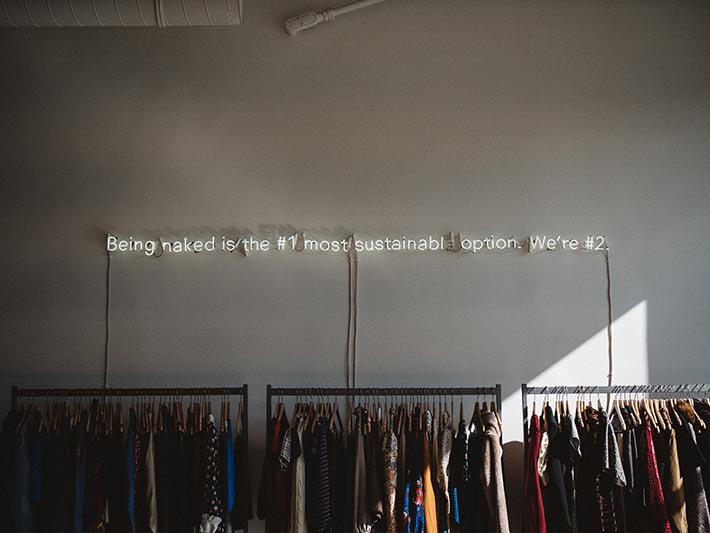Article: How fast fashion hurts the planet

How fast fashion hurts the planet
As the urgency to address climate change becomes more critical, industries are working to decrease their carbon emissions. Global warming is an aspect of climate change, and it is caused by increased concentrations of greenhouse gases in the atmosphere, mainly from human activities such as burning fossil fuels, deforestation and farming. The fashion industry is also responsible for the emission of GHG (10% of annual global carbon emissions). In 2018, the global fashion industry produced 2,1 billion of GHG emissions, which is equal to 4% of the global total. At this pace, by 2030 the fashion industry’s greenhouse gas emissions will raise more than 50%.
The garment industry is one of the most polluting in the world and the clothing production has roughly doubled since 2000.

What makes the fashion industry remarkably complicated is the frenetic rate of change it not only goes through, but also promotes. During each season, consumers are encouraged and pushed to buy the newest items to follow the latest trend. Fast fashion is one of the main causes of this need we have of changing our closet every two months. It makes shopping for clothes more affordable, but it comes at an environmental cost.
We believe every day more and more consumers are calling for a more sustainable industry. We are proud to to support a community of designers who believe in, and are working towards a more ethical and sustainable way of making fashion.
But what is exactly sustainable fashion? And what makes a fashion brand environmentally friendly? Ethical fashion is confusing, and even shoppers with good intentions get overwhelmed. It's very difficult for any piece of clothing to be 100% ethical, sustainable and environmentally friendly, but at least it would have some of the following characteristics which we look out for in all of our designers:
- Natural and organic materials are preferred over the synthetic ones: organic cotton vs. conventional cotton, modal and lyocell, rPET.
- Also making pieces of cloth from recycled materials, deadstock fabrics, or upcycled old clothing is great, because it implies that no resources are required for growing and treating new materials.
- There is another significant and growing trend in the fashion industry, which is vegan and cruelty free clothing.
- The type of packaging a brand uses is another measure of its eco-friendliness. Usually, clothes are packaged in paper, card (recyclable) and any additional padding that will not go on to take years to decompose (biodegradable).
-
Finally, sustainable companies offer a fair environment to their workers, and absolute respect for human rights. These factories also run on renewable energy.
Annually, the fashion industry creates more CO2 emissions than all international flights and maritime shipping worldwide. The reduction of carbon footprint is only one of the many reasons why we must switch to a more ethical and sustainable fashion.
Saving natural resources, such as water, soil and oil, is fundamental for the future of our planet. In fact, every year, around 70 million barrels of oil are used to make polyester fibres in our clothes and 93 billion cubic meters of water - enough to meet the consumption needs of five million people. The lives of many different species of animals are also in danger because of the fashion and leather industry, which is slaughtering and killing over 430 million animals per year. Last but not least, ethical fashion promotes ethical environments, supports safer and fairer working conditions and fights against children labour.
Since clothing is part of our everyday life, it represents an accessible and easy way for us all to promote change in this sector. As consumers, by adopting conscious consumption and supporting new industry business models (such as pre-order production models) we have the power to shape the industry.
At Maison Eisa we aim to help promote designers who share our values, to share our learnings as we too educate ourselves, and increase awareness regarding the origin of our clothes, how they’re made and their impact on the planet and its inhabitants.
Let’s choose to be sustainable!

